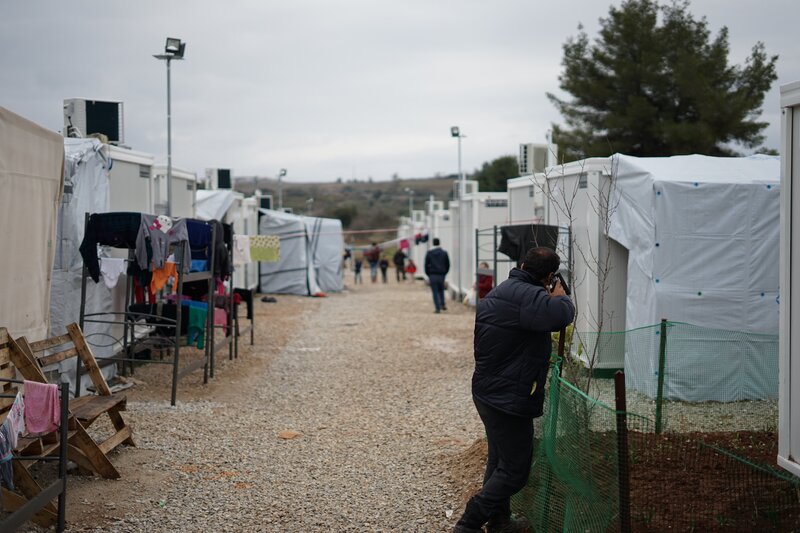A new study has found that the climate crisis could displace more than 1 billion people by 2050 as it drives an increase in migration.
—
The Institute for for Economics and Peace (IEP), a thinktank that produces annual global terrorism and peace indexes, says that 1.2 billion people live in 31 countries that are not able to effectively withstand ecological threats.
19 countries facing the highest number of threats, including water and food shortages and greater exposure to natural disasters, are also among the world’s 40 least peaceful countries.
You might also like: Can Animals Survive the Heat Stress of Rising Temperatures?
Many of these countries, including Nigeria, Angola, Burkina Faso and Uganda, are also predicted to experience significant population increases, further driving mass displacements.
Steve Killelea, the institute’s founder, says, “Ecological threats pose serious challenges to global peace. Over the next 30 years, lack of access to food and water will only increase without urgent global cooperation. In the absence of action, civil unrest, riots and conflict will most likely increase.”
To compile the study, it used UN and other data to assess 157 countries’ exposure to eight ecological threats, then it assessed their capacity to withstand them. According to the study, 141 countries will face at least one ecological threat by 2050, with sub-Saharan Africa, South Asia, the Middle East and North Africa facing the largest number. Some countries- like China and India- are most threatened by water scarcity while others, like Pakistan, Iran, Kenya, Mozambique and Madagascar face a combination of threats and a growing inability to deal with them. Pakistan faces the largest number of people at risk of mass migration, followed by Ethiopia and Iran. This lack of resilience will lead to worsening food insecurity and competition over resources, increasing civil unrest and mass displacement, the report concluded.
While wealthier nations in Europe and North America face fewer ecological threats and are better equipped to deal with the climate crisis, they will “not be immune from wider impacts.” The report found that 16 countries, including Sweden, Norway, Ireland and Iceland, faced no threat.
According to the report, the world has 60% less fresh water available than it did 50 years ago, while demand for food is predicted to rise by 50% by 2050.

















